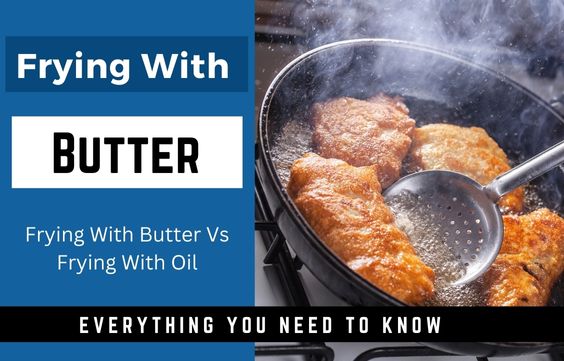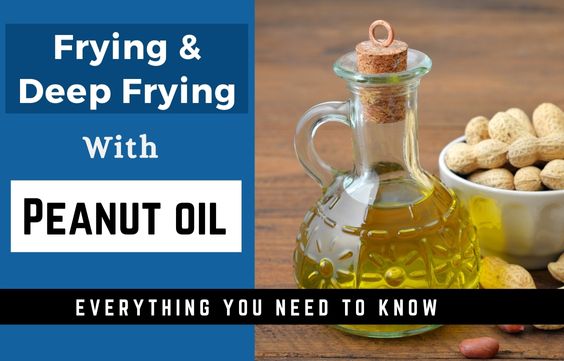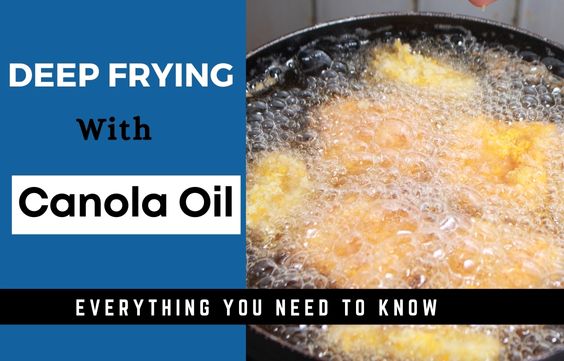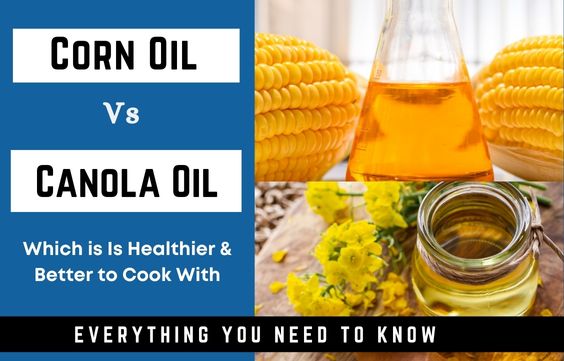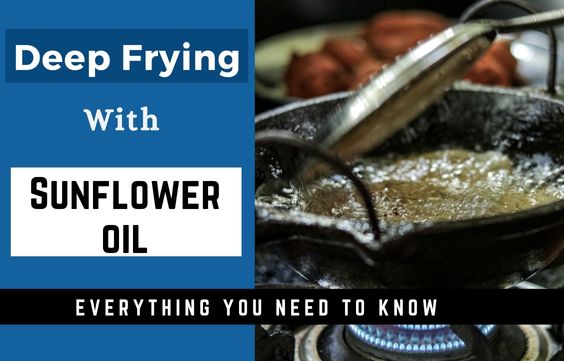10 Best Healthy Substitutes for Coconut Oil -Baking & Frying

Coconut oil is one of those controversial foods with a lot of disagreement regarding both its health benefits and taste. Citation.
You see whilst coconut oil has been popular as a key ingredient in keto or paleo diets, medical professionals have still been cautious of promoting its use. This is because of its potential to raise cholesterol levels due to its high saturated fat content.
Now, in this article, I am gonna share with you the 10 best alternatives to coconut oil. And I will also guide you on how to choose a substitute that is right for you.
Best substitutes for coconut oil in baking and frying
- Avocado Oil (Closest substitute that is great for both baking & frying)
- Butter (More suited for baking)
- Canola Oil (Best for grilling & deep frying)
- Apple Sauce (Perfect for vegan baking)
- Olive Oil (Best for sautéing or as a salad dressing)
- Grapeseed (Muffins & breads)
- Beef tallow (Pies & pastries)
- Safflower oil (A budget-friendly alternative)
- Sunflower Oil
- Ghee (Granola)
7 Best & Healthiest Oils to Fry French Fries & Chips
1. Avocado Oil (Closest substitute)
Avocado oil has a mild and nutty taste and a light avocado aroma. It is one of the few cooking oils extracted directly from the fruit, rather than chemically derived from seeds.
How To Substitute Avocado Oil for Coconut Oil: Use avocado oil in a 1:1 ratio for cooking and baking. It’s an excellent oil for baking, cooking, and frying.
It is ideal for high heat cooking like deep frying since it has an extremely high smoke point of 530°F (271°C). An oil smoke point is a point when the oil starts to burn and things get smoky.
Benefits of Avocado Oil
- Avocado oil may help to reduce cholesterol and improve heart health
- It is suitable for all diets because it is allergy-free, gluten-free, lactose-free, and vegan
- It is composed of heart-healthy oleic acid which provides various health benefits
- Avocado oil may even be beneficial for reducing painful joint inflammation
- It consists of carotenoid which is good for the eyes and lowers eye-related diseases
- It enhances the absorption of important nutrients from the food you eat
- Avocado oil decreases the production of harmful free radicals
2. Butter (Best for baking)
Butter adds a soft, creamy, rich taste with just a hint of sweetness to any baked good. Researchers are constantly changing their opinion on the use of butter. But most agree that if used in moderation, butter has some vital nutrients that can benefit any diet.
How to Substitute Butter in place of Coconut Oil: Butter has a similar heating point to coconut oil 350°F/175°C so you can substitute butter for coconut oil equally in a 1:1 ratio when baking. It can also be used in the same ratio as coconut oil in sautéing as well.
If a recipe calls for melted coconut oil, use melted butter. If a recipe calls for cold coconut oil, use cold butter in the same quantity.
It is a great substitute for coconut oil in any cookie or brownie recipe. However, because Butter has some water content as opposed to coconut oil which is pure fat, any dish baked with butter instead of coconut oil will not be as crunchy as those baked with coconut oil.
Related Article: Frying with Butter: How to Correctly – Ultimate Guide
Benefits of Butter
- Some studies have found links between high-fat dairy products like butter and lower chances of obesity, diabetes, and heart problems
- Butter is high in beta-carotene, which has been linked to lowered risks of lung cancer and prostate cancer.
- Butter contains vitamin D and calcium, nutrients that are vital for bone growth and development.
- The beta-carotene in butter may help slow the rate of vision loss, or age-related macular degeneration
Peanut Oil for Frying & Deep Frying: Ultimate Guide
3. Canola Oils
Canola oil is oil made from crushed canola seeds and has a neutral flavor. Viewed as one of the best oils for heart health. Canola oil has less saturated fat than any other oil commonly used in the U.S, and cutting down on saturated fats will help to lower your cholesterol levels.
How to substitute Canola Oil for Coconut Oil: Canola Oil has a smoke point of 400-450°F (204-230°C) which is good for high-heat purposes like deep-frying, grilling, stir-fries, and baking. You can substitute canola oil for coconut oil in a 1:1 ratio.
Canola Vs Corn Oil: Which is More Healthy & Better to Cook
Benefits of Canola Oil
- Canola oil is also very high in healthier unsaturated fats.
- It’s higher in the omega-3 fatty acid alpha-linolenic acid (ALA) than any other oil except flaxseed oil. ALA is particularly important to have in your diet because your body can’t make it.
- Studies show that ALA may help protect the heart through its effects on blood pressure, cholesterol, and inflammation.
Related Article: Deep Frying With Canola Oil – Everything You Need to Know
4. Apple Sauce (Great for Vegan baking)
Unsweetened applesauce is a great substitute for oil in baked goods, like muffins, cakes, bread, etc because it keeps food moist without all the added saturated fats.
Plus, unsweetened applesauce contains naturally occurring sugars, so depending on your preference you may need to reduce the quantity of sugar in the recipe.
How to Substitute Apple Sauce for Coconut Oil: To substitute applesauce for coconut oil, all you have to do is use a 1:1 ratio of applesauce to replace the coconut oil. That means, if your recipe calls for 1/4 coconut oil, just replace that with 1/4 unsweetened applesauce instead.
Other fruit substitutes that can be used in place of coconut oil include mashed banana or a different puree (like pumpkin or butternut squash!). Experimentation is key with any fruit substitute as they may alter the flavor of the dish.
Benefits of Apple Sauce
- A cup serving of unsweetened applesauce provides about 100 calories and 2.7 grams of fiber, or 11 percent of the daily value. It’s an especially good source of soluble fiber, the type that dissolves into a gel-like substance and helps maintain healthy blood sugar and cholesterol levels.
- Applesauce also contains pectin, a special type of soluble fiber that’s particularly effective in reducing high cholesterol levels.
5. Olive Oil (sautéing, salad dressing)
Olive oil is a liquid fat obtained from olives. It has a fruity fragrant aroma. It is believed to be one of the healthiest cooking oil, since it is rich in monounsaturated fats.
There are two types of Olive Oil
- Unrefined Olive Oil and
- Refined Olive Oil
How to substitute Both types of Olive Oil for Coconut Oil
- Unrefined Olive Oil
Extra-virgin olive oil is an unrefined oil and the highest-quality olive oil you can buy. While you can cook with extra-virgin olive oil, it does have a lower smoke point than many other oils, which means it burns at a lower temperature.
I recommend using Extra Virgin Olive Oil for dipping bread, dressing, dips, and cold dishes.
I don’t recommend using Extra Virgin olive oil as a substitute for coconut oil in baking since it has a very flavor profile that might not be suitable for baked goods.
2. Refined Olive Oil
Refined Olive Oils are labeled “pure olive oil” or just “olive oil”. They are obtained from virgin olive oils by refining methods that do not lead to alterations in the initial glyceridic structure. They can be used instead of coconut oil in soups, for sautéing and salad dressings.
Benefits of Olive Oil
- Olive oil has less saturated fats than that of coconut oil. Saturated fat been tied to increased levels of LDL cholesterol, which raises the risk of heart disease.
- Olive oil contains beneficial polyunsaturated and monounsaturated oleic acid which has been associated with a reduced risk of both stroke and heart disease.
6.Grapeseed Oil (muffins & breads)
Grapeseed Oil is made from the seeds of grapes that are normally discarded in the wine-making process. The smoke point for grapeseed oil is about 420°F/ 215.5°C.
How to substitute Grapeseed for Coconut Oil: Since grapeseed oil has a relatively high smoke point and a ‘clean’ taste, it’s an ideal all-purpose oil. But I find it works best in the baking of muffins and bread. As a substitute for coconut oil use as a 1-1 ratio.
Benefits of Grapeseed Oil
Grapeseed oil is rich in omega-6 fatty acids, which can be a heart-friendlier option than a cooking fat high in saturated or trans fats
7. Beef tallow (pies & pastries)
Beef tallow is rendered fat, usually from cattle. Like coconut oil or butter, beef tallow is a solid at room temperature and can be used in basically any savory dish that requires cooking oil.
How to substitute Beef Tallow for Coconut Oil: With a high spoke point of 420°F/ 215.5°C, it’s an ideal cooking fat for high heat cooking, frying, and baking. Use Beef Tallow in the same way as coconut oil in any recipe.
Benefits of Beef Tallow
- Rich in nutrients – not only does it help you absorb more nutrients from your food, but beef tallow is also rich in vitamins A, D, E, K, and B1.
- Reduces inflammation – tallow contains conjugated linoleic acid, which is a natural anti-inflammatory.
8. Safflower oil (Affordable)
Safflower oil comes from the seeds of a thistle-like plant called Safflower. It is ideal as a substitute for coconut oil since it has a mild flavor and a high smoke point.
Two varieties of safflower oil are available: high-linoleic and high-oleic.
- High-linoleic safflower oil which is rich in polyunsaturated fats
- high-oleic safflower oil contains more monounsaturated fats (more commonly used)
How to substitute Safflower Oil for Coconut Oil: Safflower oil has a high smoke point of 450 degrees F/ 232°C and can be used for searing, deep-frying, pan-frying, sautéing, roasting, grilling, baking, and salad dressings.
Use Safflower oil as a substitute for coconut oil in a 1:1 ratio for any recipe.
Benefits of Safflower Oil
- Safflower seed oil has linolenic and linoleic acids which might help lower cholesterol, and reduce the risk of heart disease.
- Safflower Oil contains chemicals that may thin the blood to prevent clots, widen blood vessels, lower blood pressure, and stimulate the heart.
9. Sunflower Oil
Made from the pressed seed of the sunflower, this oil is light in flavor and light amber in color.
How to use Sunflower Oil: Sunflower oil is a designated high heat oil, meaning it can withstand temperatures up to 230°C/446°F. It is best for frying and emulsifying in sauces and dressings. Use just as you would coconut oil in any recipe.
Sunflower Oil For Deep Frying – Everything you need to know
Benefits of Sunflower Oil
- Sunflower Oil has linoleic acid which lowers the risk of coronary heart disease.
- It is also low in cholesterol and rich in oleic acid, vitamin K, phytosterols and monosaturated fatty acids.
- Sunflower oil is also an excellent source for vitamin E which studies show could help slow the progression of Alzheimer’s disease.
10. Ghee (Granola)
Ghee is clarified butter. When butter is boiled, the milk proteins and milk solids are removed and the result is called ghee. Ghee tastes like butter but with a slightly roasted, nutty background note.
How to use Ghee as a substitute for Coconut Oil: It is a great substitute for coconut oil or butter in most dishes. It has a smoke point of 485°F/ 251.6°C. You can use Ghee as a replacement for coconut in recipes for granola, cookies, cakes, bread, pie crusts, crackers, buns, bagels, etc.
You can also use ghee for high-heat cooking methods like stir-frying, sautéing, or roasting.
Benefits of Ghee
- Ghee is rich in beneficial fats that can reduce your risk of cardiovascular disease, support digestion and help you maintain a healthy weight.
- Ghee is suitable for those with dairy intolerances or lactose intolerances.
- Research indicates that the CLA found in ghee may help reduce excessive weight gain. It may also help reduce the mass of body fat in some people.
Other Coconut Substitute Articles
